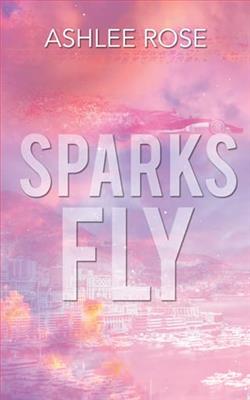Page 37 of The Alien Infiltrator
“Here we are,” Leon repeated with a slow nod. “What are our weaknesses?”
“We’ve managed to get more supplies into Kaston than I thought we would.” Martha set her tablet down and looked out across the strip of city that could be seen from the western-facing window. “The numbers say we have enough to withstand a siege for a week at least, which buys us not an insignificant amount of time.”
“But?”
“But we haven’t distributed it well, and most of it is still sitting at headquarters.” Martha shook her head. “Something’s been gumming up our plans to strategically place caches throughout the city. Trucks were not where they needed to be when they needed to be there, not having the fuel, or going to the wrong place.”
“The traitor.”
“If there is a traitor.” Martha raised a finger. “We don’t know for certain. Maybe it’s just dumb luck.”
Leon sighed and massaged his temples. “I should have brought Sebastian here sooner. He’s got a nose for that sort of thing.” He had been questioning the decision to send Sebastian to the factory from the second he made it, the what-ifs running round and round in his mind.
But Martha shook her head. “From what I hear of it, all the most perfectly located rations in the world wouldn’t help us survive a siege if that gas could be dropped on the whole city. We wouldn’t last a day.”
“I know.” Leon did know. He did. But knowing things never seemed to make them feel any better. “He’s here now. At headquarters, actually.”
Maybe even with the taste of Leon still on his tongue. Leon hurriedly shoved and kicked that thought aside. What an inappropriate time to think it.
“That reminds me, the Ralsdi family is moving their own headquarters back to Ralscoln.”
Leon blinked at the non sequitur and took a moment to rearrange his mind out of its war state and into its political one. “That’s good.”
“It is good. Puts us in a much stronger position when we get to the negotiating table.” Martha nodded decisively, and Leon could already see her working out the back-and-forth of peace talks they were a few battles out from ever seeing.
Still, the Ralsdi family—the founding family of Ralscoln—lent them some legitimacy if they publicly recognized the Resistance’s governance of the city. Publicly being the key word. They had been supporters of the Resistance for as long as Leon had been aware of the shadow network of donors and allies that kept the Resistance afloat. When the youngest Ralsdi son had been killed by Klah’Eel soldiers in a skirmish, they seized the opportunity to become more vocal about their dislike of the Klah’Eel occupation.
But Leon couldn’t even think about that right now. He was still obsessed with counting their bullets and bandages, hoping it would be enough.
“Is there anything else I should know?” Leon asked before turning to leave.
“Movement.” Martha stiffened, eyes still trained out the window.
Leon turned back with a frown. “What?”
“Movement.” Martha raised a hand and pointed out the window.
Leon turned to it fully and braced his hands on the ledge.
The lights reflecting off the low cloud had flared and brightened, flashing different colors. Ships rose over the ridge.
“Shit,” Leon swore just as sirens screamed to life in the streets below him and on the rooftops overhead.
For a moment, he couldn’t breathe.
He remembered those sirens. They hadn’t been there when the Klah’Eel had first invaded, but they’d been erected quickly in all cities and towns within the first few days. Too many nights to count in those first couple of years he had spent running, hiding, and fitting his small body into any hole of shelter he could find while those shrieked in the air.
He hadn’t heard them since.
“Leon!” Martha’s hand grabbing his shoulder and spinning him around broke him out of his cold-sweat-soaked reverie.
Suddenly he was back, no longer the terrified child but the man that child had grown into.
“Get somewhere safe.” Leon grabbed her wrist and squeezed it in the closest thing to an embrace he had time to give. “Manage the supplies.”
Then he took off back to the stairs and took them in leaps and bounds up to the roof.
Tables with rifles, radios, and ammunition had been set up around the huge, flat area. Floodlights, off for now, and flags, furled around heavy poles, lay in the center. Captain Mal’ik stood at the roof’s edge and looked into the maze of streets below. Kaston had arisen organically as settlers had streamed in, and the streets and buildings formed anything but a sensible grid.















